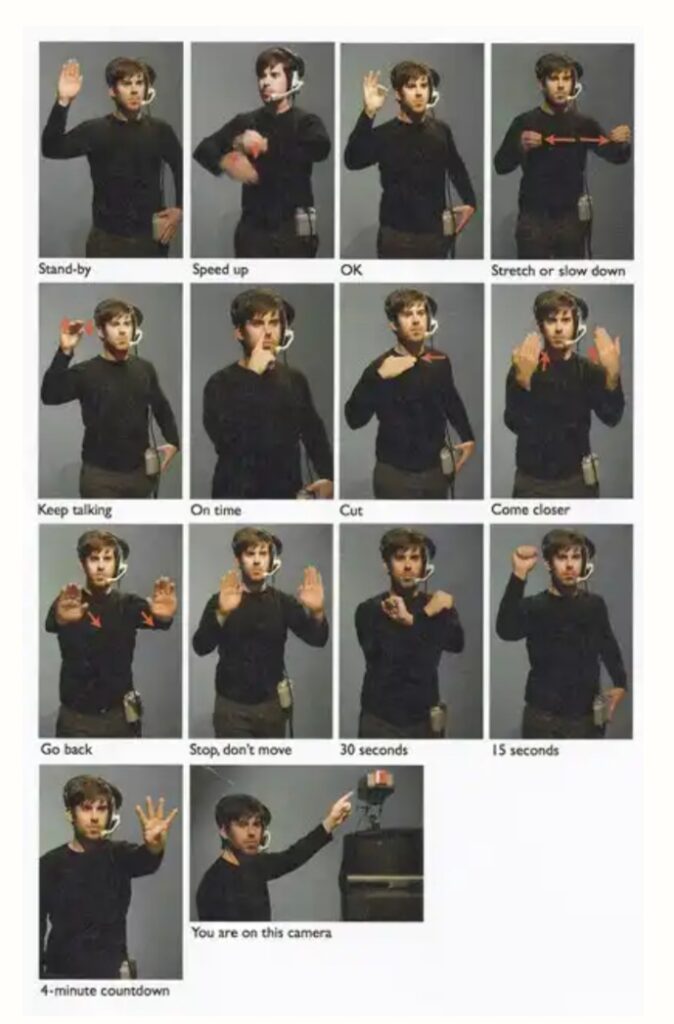Qualities of Excellent Announcer-Presenters
Introduction
There are many qualities announcer-presenters require to perform excellently. In this post, we look at some of the most crucial of those qualities. Note that this is our third post on Announcing and Performance with the first two listed below:
Reading the foregoing will likely help you to better comprehend this post.
Qualities Needed for Superb Announcing and Presentation
Correct and clear pronunciation of words
Announcer-presenters must show evidence of adequate phonetic training in the language they work with. They should avoid dialectical and native tongue intrusions into their speech. In the Nigerian case, they should speak undiluted English (not cockney or other variations of the language except when they are anchoring programmes specifically billed to be in those variations).
The emphasis should not be to sound foreign but to enunciate words clearly in pure English. Aspiring presenters should train hard and be able to speak well naturally and with ease because putting on airs and speaking through clenched teeth will put the audience an edge, make it hard for them to get the message and invite ridicule to the presenter.
Question:
Of the presenters you know, which of them have this quality and which ones fall short?
Correct use of grammar
Making grammatical mistakes on air is as offensive as farting in public. This is why it is important to work with a well-prepared script even if one has memorise it or use a teleprompter. One common error is speaking without concord.
Examples:
Michael come to the plaza every day.
Mary and Jane does their performance on Tuesday.
Another common error is switching pronouns. Referring to Mary as ‘he’, ‘she’ and in the possessive form, ‘his’, ‘her’.
When the problem involves wrong word choice, it can throw the audience into confusion.
Basic drilling in the basis of language such as singular and plurals, the roles of various parts of speech and how to use them is, therefore, imperative.
(To Read: This post further explains crucial grammar fundamentals: Underscoring the Importance of Language Correctness.)
A pleasing appearance (for TV)
Good looks confer an advantage on people hoping to appear on TV. Whether they are naturally good looking or not, professional stylists can help them learn how to hide their weak points and accentuate their strong points.

A well-dressed TV presenter (Credit: Freepik)
Style tips
A lot of celebrities and TV personalities that look amazing have had much work done on them, including plastic surgery, to polish their appearance.
That said, every announcer-presenter is expected to devote extra care to personal grooming – hair, makeup, clothes, shoes and jewelry.
The dressing of the announcer-presenter should match the nature of the programme – formal dressing for formal shows, informal for entertainment shows.
In his book, The fundamentals of broadcast programming, Church Akpan gives some tips for appearing on TV.
***He counsels that since TV makes people appear 10 pounds (4.5 kg) heavier, presenters look best in tailored clothes.
***Bright and deeply saturated colours like Lady Gaga and Nikki Minaj would wear should be avoided in both clothes, jewelry and makeup..
***Patterns that have intricate details or too many diverse colours should be avoided. Similar colours or a single colour are rather advised in the outfits worn.
***Foundation makeup is recommended for both men and women because of the ‘harsh’ studio lights.
(To watch: A male TV anchor humourously shares his makeup routine.)
More style tips: What to avoid
***Although many are pushing boundaries on these, dreads, Mohawks and braids are not advised for men who anchor formal shows.
***Too much loose hair, unnaturally-coloured wigs and oversized traditional scarfs for women can be distracting. (Think of Black presenter, Joy Reid of MSNBC, and her blond wig.)
***Nose rings, pierced lips and eyebrows, noticeable tattoos, long and dangling earrings, jingling bangles and shocking makeup are not for formal shows.
***Avoid plunging necklines, tank tops, spaghetti straps, bare backs, see-throughs, minis and one-shoulder garments for serious shows like those on news and current affairs.
Possible grooming interventions that may be needed:
***Reduce bushy eyebrows
***’Clean and whiten teeth
***Visit an orthodontist to fix irregular dentition
***Shave hairy legs for women wearing gowns
Question: Suggest appropriate ensembles for presenters scheduled to host the following shows:
***a man hosting a performance by cultural dance troupes from Akwa Ibom State in Uyo
***a woman hosting a one-day female beauty pageant at UNN
***a man and woman anchoring the major news programme of the day at a TV station in Abuja
Basic knowledge of broadcasting
This means that announcer-presenters are required to know about broadcast equipment and how they work e.g. different types of microphones and cameras. Without this knowledge, they may transmit embarrassing and scandalous stuff unintentionally or create technical difficulties where there should be none.
Announcer-presenters also need to know the roles of various members of the technical crew and their co-presenters so they can work harmoniously with them. For example, the director is like the coordinator or manager of a production who assigns to all the talent (performers) and technical crew their responsibilities. Obeying his instructions will lead to what Ohaja (2008) calls a technical style and harmony without overlapping of roles and conflicts of focus.
The floor manager gives technical directions within the studio during a production. Knowing the lingo and signs will help the presenter to follow these instructions.

Floor manager’s signs and their meanings
(Image credit: Kreativ Alchemy via Streamsemester)
Knowing the language will also help him/her to understand the script (news bulletin) and what the words and symbols giving technical instructions therein mean.
Finally if there are two presenters, they should work cordially and harmoniously, not competing with and making snide remarks about each other.
Exude warmth and friendliness
Announcer-presenters, as we said in an earlier post, are like receptionists or salespersons. They can make or mar the image of their stations. They are, therefore, expected to have a warm and charming disposition. This will make the audience willing and eager to view/listen to their shows.
They should wear a smile and make eye contact (e.g. when welcoming guests). Also, direct address and empathy are often required to give the audience a sense of belonging, to make them feel the presenter cares for them as individuals/families and communities, especially for eponymous shows. But in doing this, the presenter needs to sound sincere in order not to hurt and antagonise the audience. In addition, the language of announcer-presenters should be polite and personally conversational since the viewers/listeners welcome them into their homes, offices, etc. through their programmes.
Question: Which presenters do you consider most friendly and why?
Some of the strategies for evoking audience involvement and participation besides a personal (informal) and warm disposition include:
***Having a tagline or anthem (different from the signature tune):
This helps to establish rapport with the studio audience where there is one. When the presenter declares the tagline and the audience responds or they sing the anthem together followed by loud cheering, it brings some liveliness into the show and the excitement generated among the studio audience is transmitted to viewers everywhere.
***Making a grand entrance:
Trumpet blasts, drum rolls, flashing lights, fancy dance moves and brief interaction with a few audience members by the presenter can animate those tuned in to a show. It is like a promise that the programme will be a thrill.
(To Watch: Clip of Wendy Williams’ grand entrance for her show)
***Making the programme interactive:
Allowing phone calls, texts and email to ask questions and make comments helps people to feel empowered and identify with a show.
***Organising quizzes:
Quizzes (particularly the kind that tests knowledge of what was aired during the show, with rewards of course) help to boost audience attention.
***Giving away gifts:
E.g. tickets to the show, jewelry, paid trips, food items and products from corporate sponsors.

In sum, announcer/presenters should be enthusiastic and humourous, not look bored or self-absorbed. They should crack jokes if they can and the mood is right but they should avoid rude and offensive humour.
Other qualities required for success in announcing/presentation are broad knowledge of the subject of one’s programme, boldness and technological savviness that translates to effective use of the internet to gain visibility and popularity. Announcer-presenters who would stand out also need to constantly rehearse; do themed, rather than general, presentations on their subject of focus; pace their speech and be ready to ad lib when occasion demands.
Question: How can announcer-presenters harness the internet to gain visibility and popularity for themselves as brands and for their shows?
(Illustrate your answer with how a well-known presenter of your choice has achieved this.)
Conclusion
Although all the qualities discussed and mentioned in this post are very important, I would say that eloquence, mastery of one’s subject and friendliness are the most critical for success as an announcer-presenter. What’s your take on this?
Question: Which of the qualities in this post do you find most daunting and why?
References
Akpan, C. S. (1998). The fundamentals of broadcast programming.
Kreative Alchemy. Floor director’s hand signals.
https://www.streamsemester.com/articles/floor-director-hand-signals
Ohaja, E. U. (2023). For the communicator: Underscoring the importance of language correctness.
Related Posts


This is breathtaking honestly.
Good work, ma!
Learnt a lot.
Glad to hear it. You are blessed!
It was am excellent
discussion
Outstanding work.💯
Praise God!